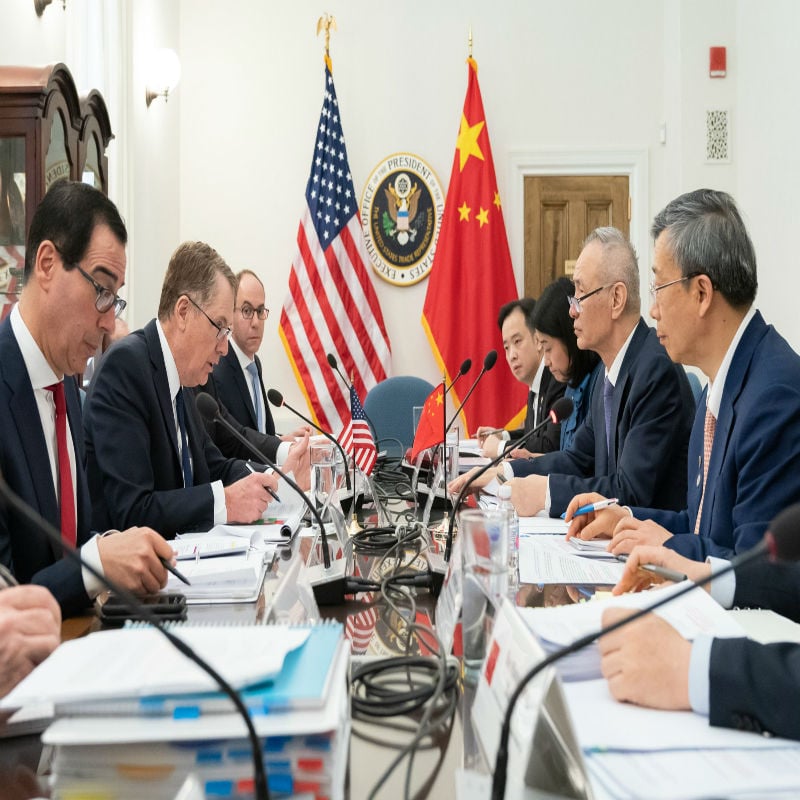Published:
The United States and China have been in a trade war since July of 2018 when U.S. President, Donald Trump, imposed large taxes on imported Chinese products. President Trump declared a 15% tax on many American goods, and Beijing has fought back with 5-25% taxes on American goods. These taxes have created tension between the two country's markets, making it harder for businesses to sell in either country. But due to new agreements, this trade war may be coming to an end.
Before the new trade negotiations, the U.S. and the Chinese trade war had been affecting many different companies. This past August, 81% of U.S. companies in China said that they have been affected by the U.S. and China tensions. Over 3,000 American companies filed for 44,000 exclusions from the tariffs, but many were denied. One of these companies was Apple, which had seen a 17% drop in iPhone sales after two-quarters of the tariffs being in place. Apple has been turning, instead, to promote their other devices and technologies to gain back that drop in sales. This past year, the iPhone did not contribute to over half of the companies sales, the first time this has happened in over 7 years. Other companies, such as Amazon, have seen drops in their stock prices and lowered investment into their companies. Due to rising prices, small businesses are also taking hits from the trade war.
After nearly a year and a half, the trade war is coming to an end. The two countries are both deciding to lower tariffs and participate in more trade, which is helpful for the global market. The agreements themselves though a little more complicated. The tariffs that are currently in place are not completely leaving, but instead, the negotiations are to stop the war from going further.
China and the U.S. are re-negotiating their trade agreements to finally end the trade war that is affecting large and small companies alike. On December 13, 2019, the two countries made a preliminary deal where China would purchase more U.S. goods, open the financial sector, and not devalue the Chinese Yuan. In exchange, President Trump has canceled $156 billion of new tariffs that were set to begin on December 15, 2019. President Trump also agreed to cut the 15% tariff in half on $120 billion of Chinese goods. The signing was set to take place yesterday on Wednesday, January 15, 2020.
This could be the end of the trade war in China, but the investment and economic consequences are still prominent. This will continue to affect the global economy and the outcome of these deals could decide the future of many large global markets.
File under






